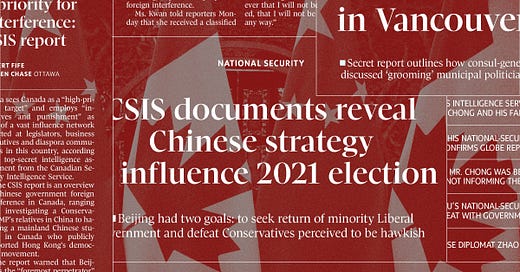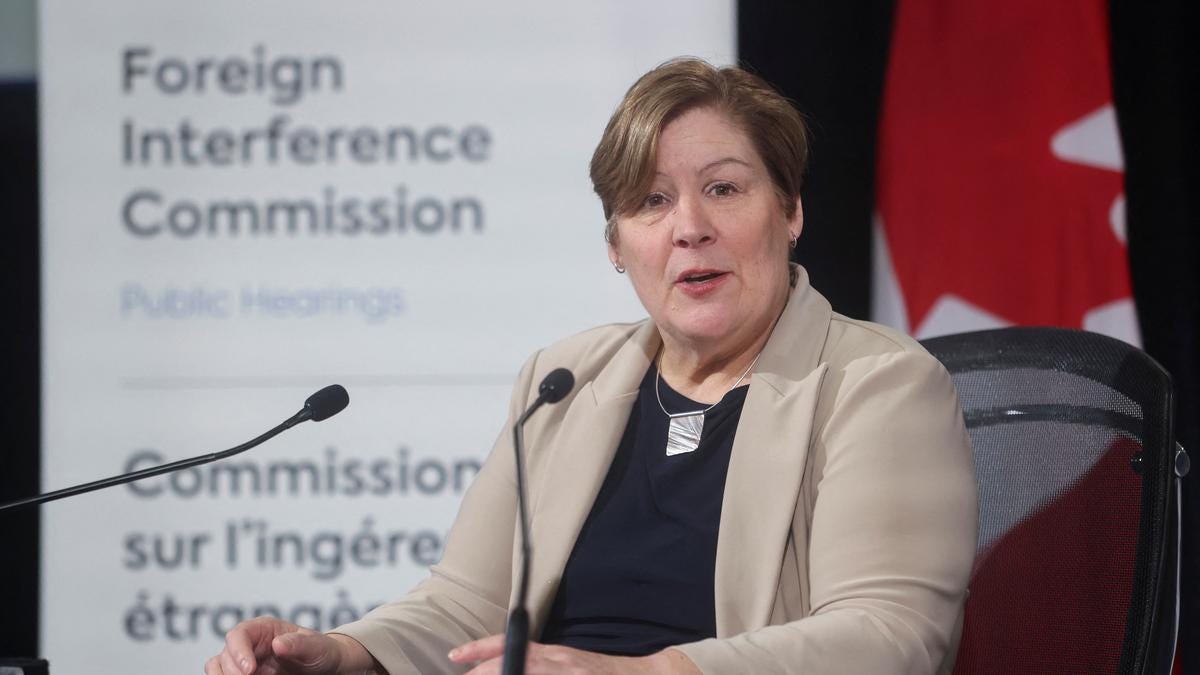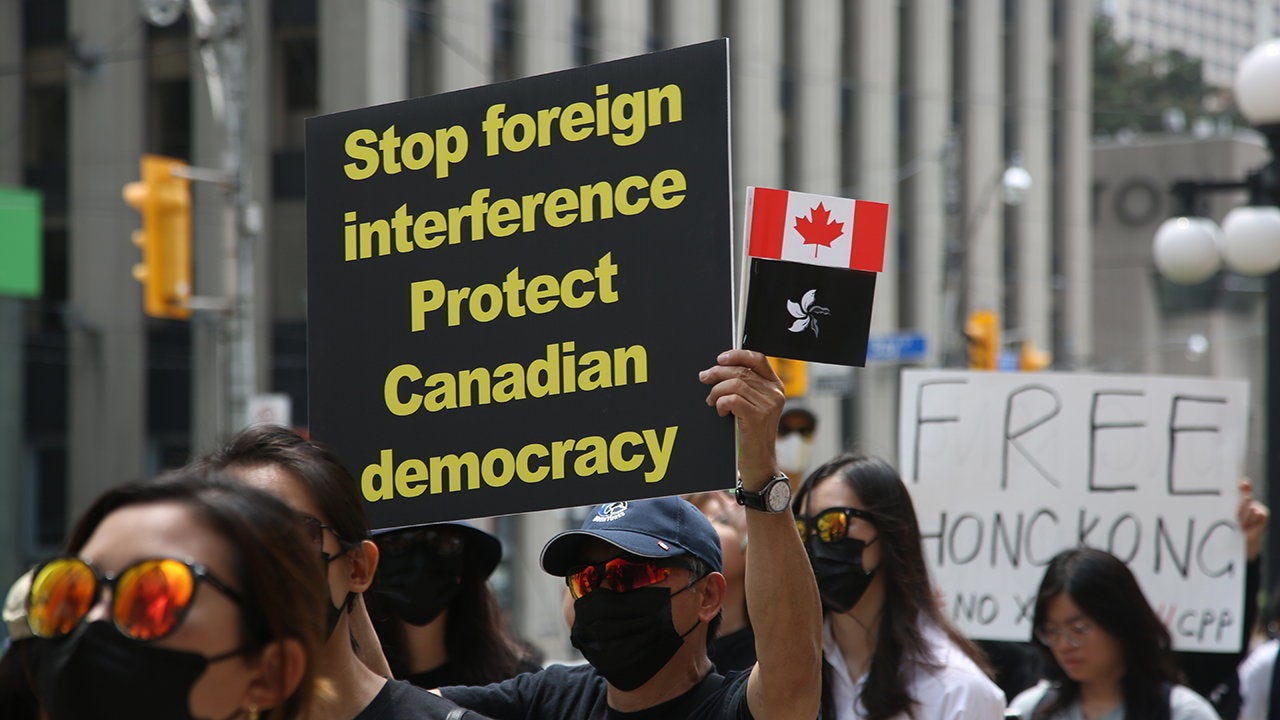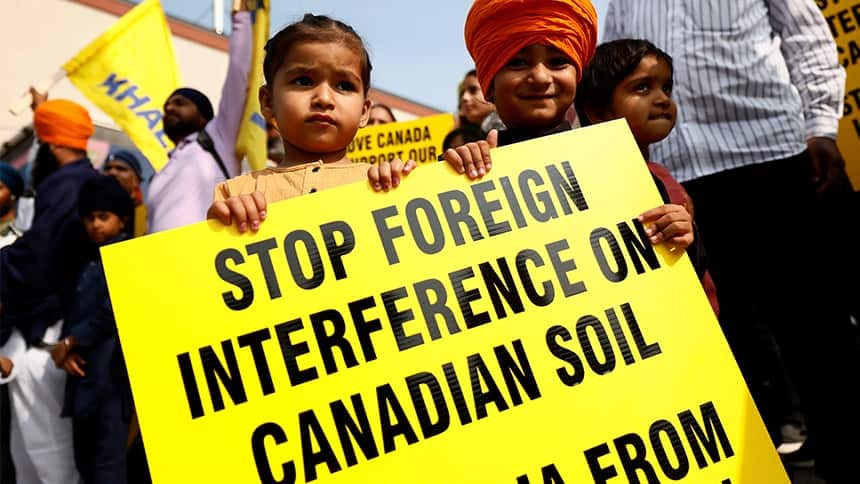Safeguarding Our Democracy - Combatting Misinformation and Foreign Interference in 2025
How Foreign Interference, Social Media Polarization, and Evolving Threats Undermine Public Trust in Our Institutions, and What Canada Must Do Next
The Evolving Threat of Misinformation and Foreign Interference to Canada’s Democracy
It’s no secret that Canada’s democratic institutions face unprecedented challenges — from sophisticated misinformation campaigns and targeted foreign interference — as highlighted in the 2025 Foreign Interference Commission’s Final Report.
According to Commission’s findings, misinformation is now the #1 threat to our democracy.
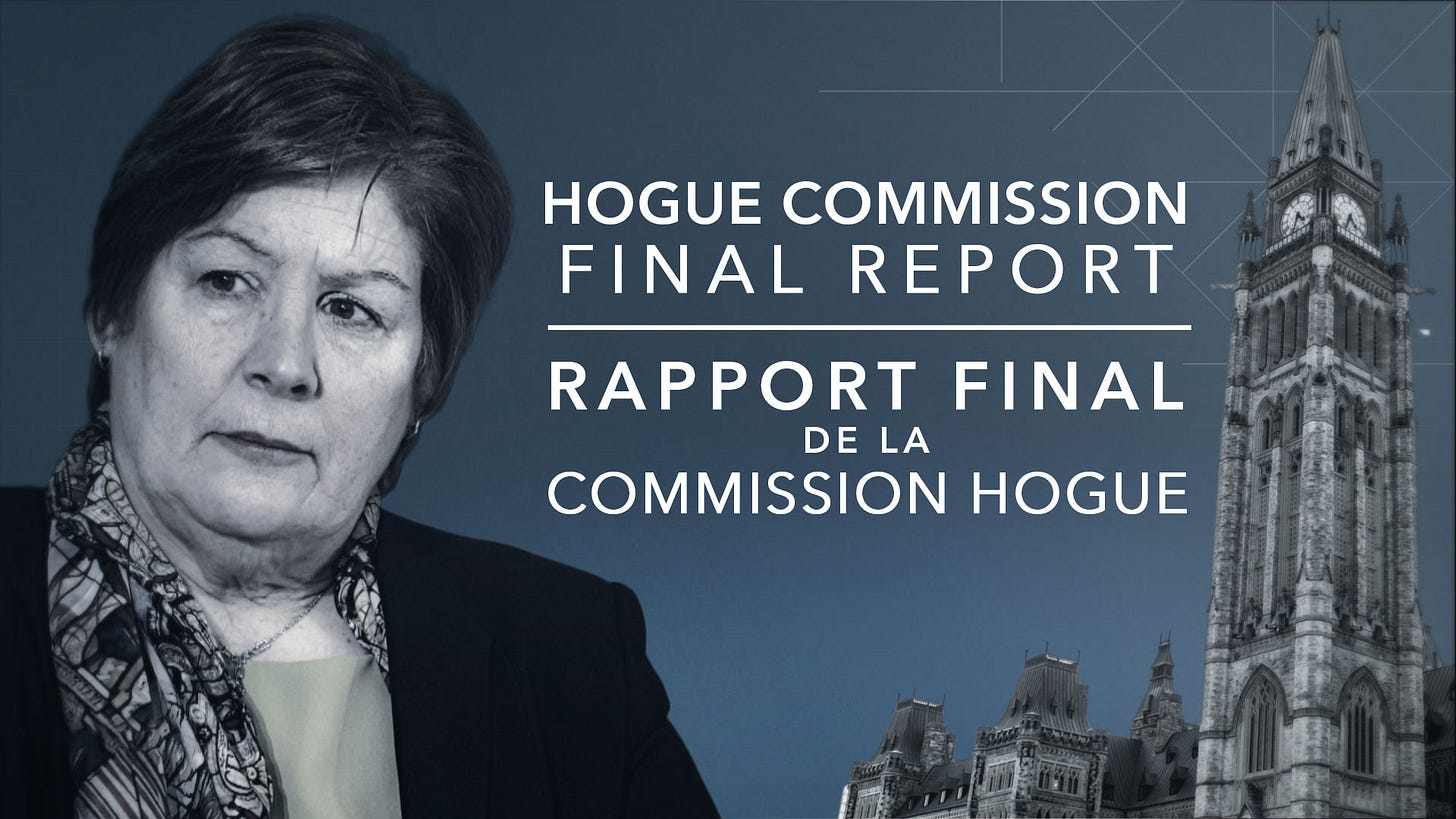
While our democracy remains resilient, the tools and tactics used to undermine public trust in our democratic processes are evolving quickly, and these new threats demand urgent policy responses.
1. The Current Threat Landscape
The Foreign Interference Commission confirmed that foreign states (including China, India, Russia, and Pakistan) employ covert methods to influence Canadian politics, including attempts to discredit political candidates, threats to diaspora groups, and efforts to dodge election finance rules.
The Commission’s key findings included the following:
No election outcomes were overturned, but foreign interference likely impacted both 2019 and 2021 federal elections in a small number of ridings
State-sponsored actors exploited social media to spread divisive narratives, including false claims about both Liberal and Conservative Party policies, and targeted disinformation about candidates.
Platforms like TikTok and X (formerly Twitter) have become critical vectors for misinformation given how their algorithms specifically amplify polarizing content, and how they have reduced content moderation.
2. Shifts in Canada’s Information Ecosystem
The Media Ecosystem Observatory (MEO) highlights three huge changes that have occurred since 2023 that have rapidly harmed our information landscape:
Meta’s ban for Canadian news outlets on Facebook/Instagram has wiped out engagement for smaller outlets, and in turn pushed many major publishers to TikTok, where content spread concentrates their reach to a handful of posts.
X’s devolution under Elon Musk has directly led to a rise in conspiracy theories and hate speech, as well driven an exodus of left-leaning users towards the more highly moderated BlueSky platform. Additionally, TikTok’s growth (accounting now for 73.5% of centre-aligned news engagement) has created extensive echo chambers that entrench pre-existing assumptions/beliefs.
Right-aligned media has shifted to YouTube but failed to offset Meta-related losses, which in turn has worsened polarization.
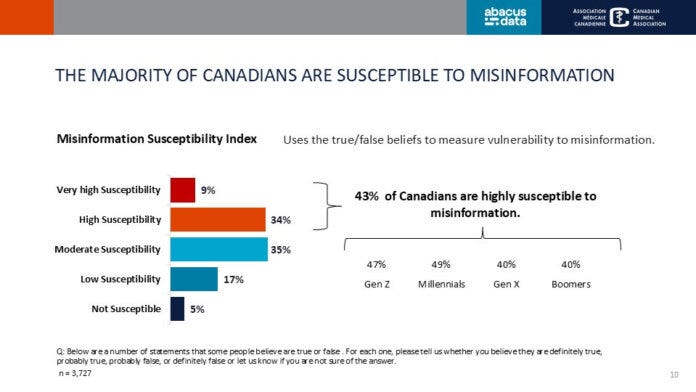
These changes have left Canadians more vulnerable to foreign disinformation, particularly through platforms that prioritize engagement over accuracy (like X, Youtube, and Meta).
3. Case Studies in Foreign Interference
Russian State Media: RT and Sputnik platforms were found by Disinfowatch to have amplified far-right Canadian content and targeted Liberal Leader Mark Carney with false narratives about his climate policies.
PRC-Linked Activity: The Hogue Commission identified there have been many attempts by China to manipulate Chinese diaspora communities in Canada and influence nomination contests, such as in the Don Valley North riding (2019).
India and Pakistan: The Hogue commission also reported that both India and Pakistan likely interfered in the 2021 federal election through disinformation targeting specific ridings.
4. Policy Recommendations
To counter these urgent threats, I’d recommend that the federal government target the following areas:
Platform Regulation — Mandate transparency in algorithmic curation and ad targeting, and punish platforms hosting state-linked disinformation.
Support Public Broadcasting — Establish consistent, multi-year funding for Canada’s national broadcaster CBC/Radio-Canada.
Local Journalism — Expand subsidies for small outlets disproportionately harmed by Meta’s ban.
Digital Literacy — Fund nationwide campaigns (e.g., DisinfoWatch’s guides) to improve critical thinking and source verification.
Election Integrity — Revive Bill C-65’s proposed bans on foreign interference and establish a foreign influence registry.
Intelligence Sharing — Enhance collaboration between CSIS, the Communications Security Establishment, and political parties.
Conclusion
Canada’s democracy is tough, and has proven resilient in the face of these threats. But the combination of increasingly hostile acts of foreign interference — combine with a fracturing information ecosystem — demands we take active measures now.
By addressing social media platform accountability, supporting public broadcasting and independent media, and empowering our citizens with digital literacy tools, Canada can safeguard its democratic processes while upholding free expression. As the Foreign Interference Commission concluded, it’s vigilance — not complacency — that is the key to maintaining public trust in our institutions.
Resources
Here are some great resources that I’d highly recommend you check out:
🔹 Centre for the Study of Democratic Institutions (CSDI)'s Chris Tenove, who covers rising concerns over election fraud in Maclean’s: https://lnkd.in/ej_scWGZ
🔹 Join The Democratic Engagement Exchange at TMU at the Canadian Vote Summit in Montreal, May 20–21, with sessions on disinformation, AI, and civic participation: https://lnkd.in/ePWm8uaX
🔹 Try Digital Public Square's "Canada Is Talking" tool promoting civic dialogue as part of their COMET project: https://lnkd.in/ef3vXHj8
🔹 DisinfoWatch's new report, which shows Russian state media targeting Mark Carney: https://lnkd.in/eqyMPnH9
🔹 Learn how the Media Ecosystem Observatory tracked election disinformation through social media with KoboToolbox: https://lnkd.in/dtrqGPMK


